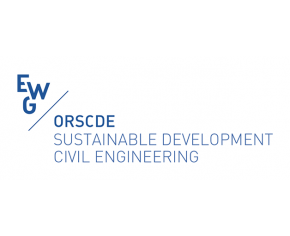The decision to establish EURO Working Group “OR in Sustainable Development and Civil Engineering” was taken after a long international collaboration between researchers from several European countries (Lithuania, Germany, Poland, United Kingdom, Belgium, Denmark, Latvia, Estonia, Czech Republic, Slovenia). The working group was created at EURO Conference XXIII in 2009, Bonn (Germany). Currently group joins more than 100 scientists from 20 countries (Lithuania, Germany, Poland, United Kingdom, Belgium, Denmark, Netherlands, Portugal, Latvia, Estonia, Czech Republic, Slovenia, Russia, Ukraine, Australia, Iran, USA, Taiwan and others), but at the early beginning research group consisted of the professors from the only Lithuanian, German and Polish academic and research centers. Marking the importance and the uniqueness of the beginning of collaboration this research group was later in articles referred to as the “scientific triangle”.
Collaboration in exchanging of research achievements, consulting on publications, cooperating in joint papers, supporting the future research was realized through organization of colloquiums, which were held every two year in the different academic centers and cover different areas. As the examples, the topic of 13th colloquium held in 2011 was “Civil Engineering Projects” and the topic of 14th colloquium hold this year is “Innovative solutions in construction technology and management”.
Scientific cooperation started by three academic centers: the Leipzig University of Applied Sciences (Applied Sciences – Germany), Vilnius Gediminas Technical University (Vilnius Gediminas Technical University – Lithuania) and Poznan University of Technology (PUT – Poland) in form of colloquia in 2011 celebrated the twenty-five-year anniversary.
Every colloquium from the first one held in 1986 and to the last had given the considerable contribution to the publication of research papers and books, development of research, preparing doctoral dissertations and for international recognition. The cooperation resulted with scientific results: written 45 scientific books, including 8 scientific monographs; more than four hundred articles published in scientific journals; 13 professors defended a habilitation or passed habilitation procedure; 54 doctoral students defended doctoral dissertations in field of civil engineering; six scientific publications in 2006, 2010, 2011 and 2012 by ScienceWatch.com were selected as Top cited and Hot articles in mathematics, engineering and business fields; a few European patents were the registered. The institutions have signed the exchange agreements under which teachers and students exchanges more than twenty years.
Every year EURO working group presents the results of scientific cooperation in annually issued Newsletter available on Web page https://www.euro-online.org/websites/orsdce/.


